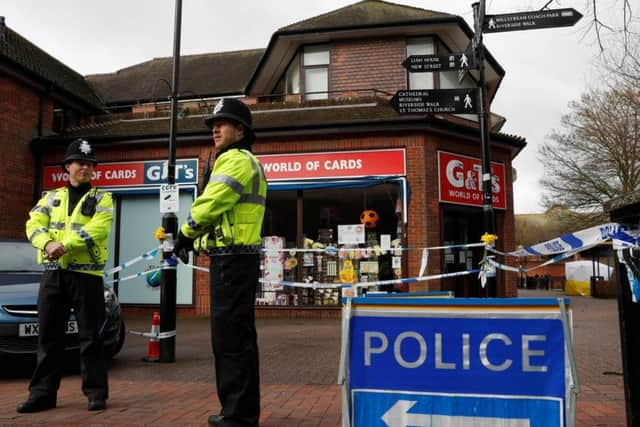Leader comment: UK needs Nato and EU to help deal with Russia
Barring revelations about the existence of a real-life Bond villain with scores of henchmen, it now seems all but certain that Russia decided to launch a chemical weapons attack on British soil.
Moscow will continue to deny it, of course, but it has lost any real credibility because of its regular deployment of “implausible deniability”, the phrase used by US National Security Adviser, H R McMaster, to describe Russia’s insistence that it had not interfered in the US presidential election. In a revealing interview with NBC News this month, Vladimir Putin suggested the people involved in that particular act of hostility towards a foreign country were “maybe not even Russians”, saying “maybe they’re Ukrainians, Tatars, Jews, just with Russian citizenship”.


Advertisement
Hide AdAdvertisement
Hide AdThis kind of mindset and the tactic so ably described by McMaster should be borne in mind when considering Russia’s dismissal of Theresa May’s remarks that there were only two possible explanations for the chemical weapons attack in Salisbury – it was sanctioned by the Kremlin or Russia has lost control of its novichok nerve gas stockpile. Taking a leaf out of North Korea’s book, the Russian foreign ministry said her remarks were a “fairy tale”.
It is alarming when any country gives another a deadline of little over 24 hours – as the UK gave to Russia yesterday – about anything. It seems highly unlikely that, by the end of today, Russia will have come up with a satisfactory explanation for how its nerve gas was used to poison Sergei Skripal, his daughter Yulia, and a British police officer, Nick Bailey, in Salisbury.
If it does not, the UK must respond in a way that makes Russia regret its actions and ensures such an attack does not take place again.


But it seems unlikely that Britain has the power to be able to do this alone. In addition to serious unilateral measures, the UK must seek to persuade its allies in Nato, in the European Union and at the United Nations to present Russia with a united front.
Companies that trade with Russia should also consider their position. Given the state of the rule of law in Russia, is it wise to do business there?
And if, as looks likely, Russia is responsible for what the Prime Minister described as “an indiscriminate and reckless act against the United Kingdom, putting the lives of innocent civilians at risk”, is it moral?
